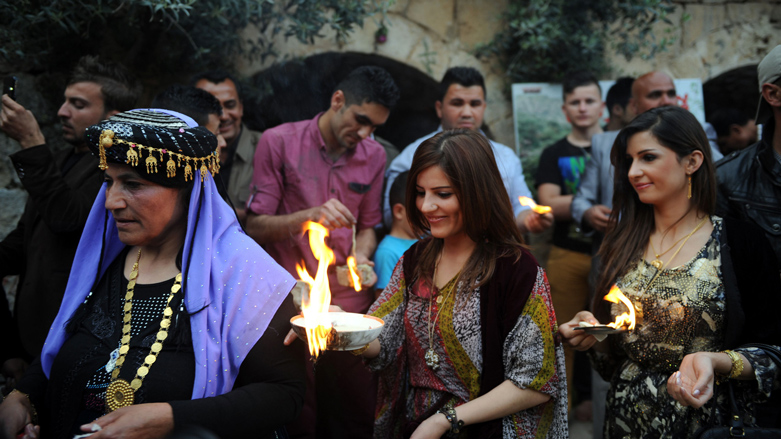Four Yezidis kidnapped by Islamic State rescued so far in 2019: Kurdistan official

ERBIL (Kurdistan 24) – The Kurdistan Region’s office dedicated to the rescue of Yezidis (Ezidis) kidnapped by the Islamic State announced on Sunday that they had brought back another woman who was abducted in mid-2014, making a total of four in just under the first two weeks of 2019.
The 20-year-old member of the Ezidi religious minority was rescued from Syria, the head of the rescue office in Duhok, Hussein Qaidi, told Kurdistan 24 on Sunday. He offered no further details on her current state or situation.
“The Ezidi woman, identified as A. Babir. K., is from the village of Kocho (Kojo) and was kidnapped by Da’esh [Islamic State] along with many other Ezidis on Aug. 15, 2014,” Qaidi said.
He mentioned that the office had rescued three other Ezidis so far in 2019 and had reunited them with their families in the Kurdistan Region.
“Since opening the rescue office at the end of 2014, we have been able to save 3,336 Ezidis from both genders from the total of 6,417 kidnapped Ezidis by terrorists,” Qaidi added, stating the office would continue to put great effort into the daunting task of rescuing all Ezidis who remain in captivity.
The emergence of the Islamic State and its violent assault on the predominantly Ezidi city of Sinjar (Shingal) in 2014 led to the displacement of hundreds of thousands of Ezidis. Most of them fled to the Kurdistan Region, while others moved to neighboring countries in the region or Western states.
Others were not as lucky and remained stranded in the war zone, where they experienced atrocities and mass executions at the hands of the extremist group for years. Militants subjected women to sexual slavery, kidnapped children, forced religious conversions, executed scores of men, and abused, sold, and trafficked girls across areas they controlled in Iraq and Syria.
Prior to the 2014 attack, there were roughly 550,000 Ezidis in the Kurdistan Region and Iraq. As the jihadist group took over large swaths of territory in Nineveh Province, 360,000 Ezidis escaped violence and found refuge elsewhere, according to the Ezidi Rescue Office.
So far, 69 mass graves which contain the remains of Ezidis have been excavated along with untold numbers of individual graves.
Editing by John J Catherine
